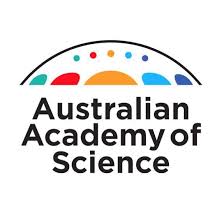
 |



Research is a process with many steps, and is rarely linear. A good researcher uses multiple sources and continually goes back and reviews their question and keeps adding new vocabulary and learning to their search. This Libguide has been created to provide support for your research tasks in Science.

For some research tasks books are still a good source of information. Unlike novels we generally do not read non-fiction books from cover to cover so it is important to understand how to use a book more effectively for your research.
| TITLE PAGE | gives publication information such as complete title, names of all authors or editors, edition of the book, name of the publisher and city of publication, and date of publication. |
| TABLE OF CONTENTS |
appears at the front of a book and gives a list of the chapters or sections in a book, The table of contents may give a general idea of the topics covered in the book as well as how the book is arranged (e.g., chronologically or topically). |
| PREFACE / FOREWORD / INTRODUCTION |
If there is one it is located after the contents, and may provide you with ideas about the author's intention or purpose for writing the book. |
| BIBLIOGRAPHY |
is a list of materials related to a specific topic. The list may be items that were used as reference for the work they accompany, or it may be a list of additional materials on the topic. Bibliographies are usually located at the ends of chapters or at the end of the book. |
| INDEX |
is usually located in the back of the book and is an alphabetical list of the specific subjects in the book, with the corresponding page numbers. Indexes may provide names, dates, events, geographic locations, and other detailed terms related to the contents of the book. Browsing an index is an excellent way to identify exactly where in the book relevant information may be located. An index can also provide subject terms and keywords that might be useful for further research on a topic. |

The Australian Academy of Science provides accurate and engaging content in a way that everyone can access. They publish current, interesting and understandable information covering the breadth of science - Technology & the future, People & medicine, Earth & environment and Space & time.
Read up-to-the-minute articles from New Scientist.

You can use Oliver to find books in the library however sometimes it is helpful to know the Dewey numbers for a subject. In doing so you will be able to find books on that subject in most libraries. It will also be useful at those times when you know the topic but don't know where to start looking.
Note that, resources about specific events will be located within the Dewey division for the country where the event took place.

|
500 |
Science |
|
510 |
Mathematics |
|
520 |
Astronomy |
|
530 |
Physics |
|
540 |
Chemistry |
|
550 |
Earth sciences & geology |
|
560 |
Fossils & prehistoric life |
|
570 |
Life sciences; biology |
|
580 |
Plants (Botany) |
|
590 |
Animals (Zoology) |